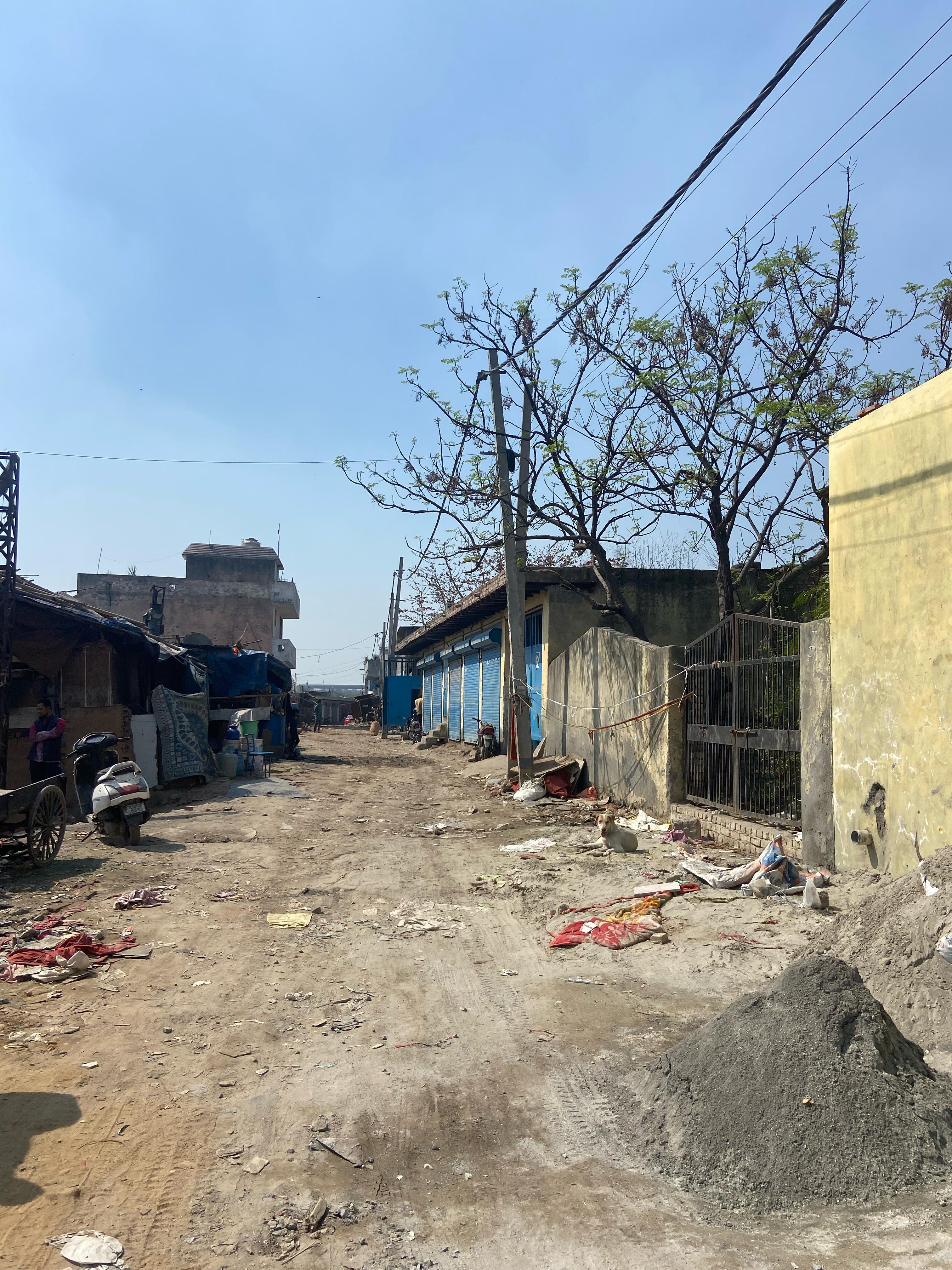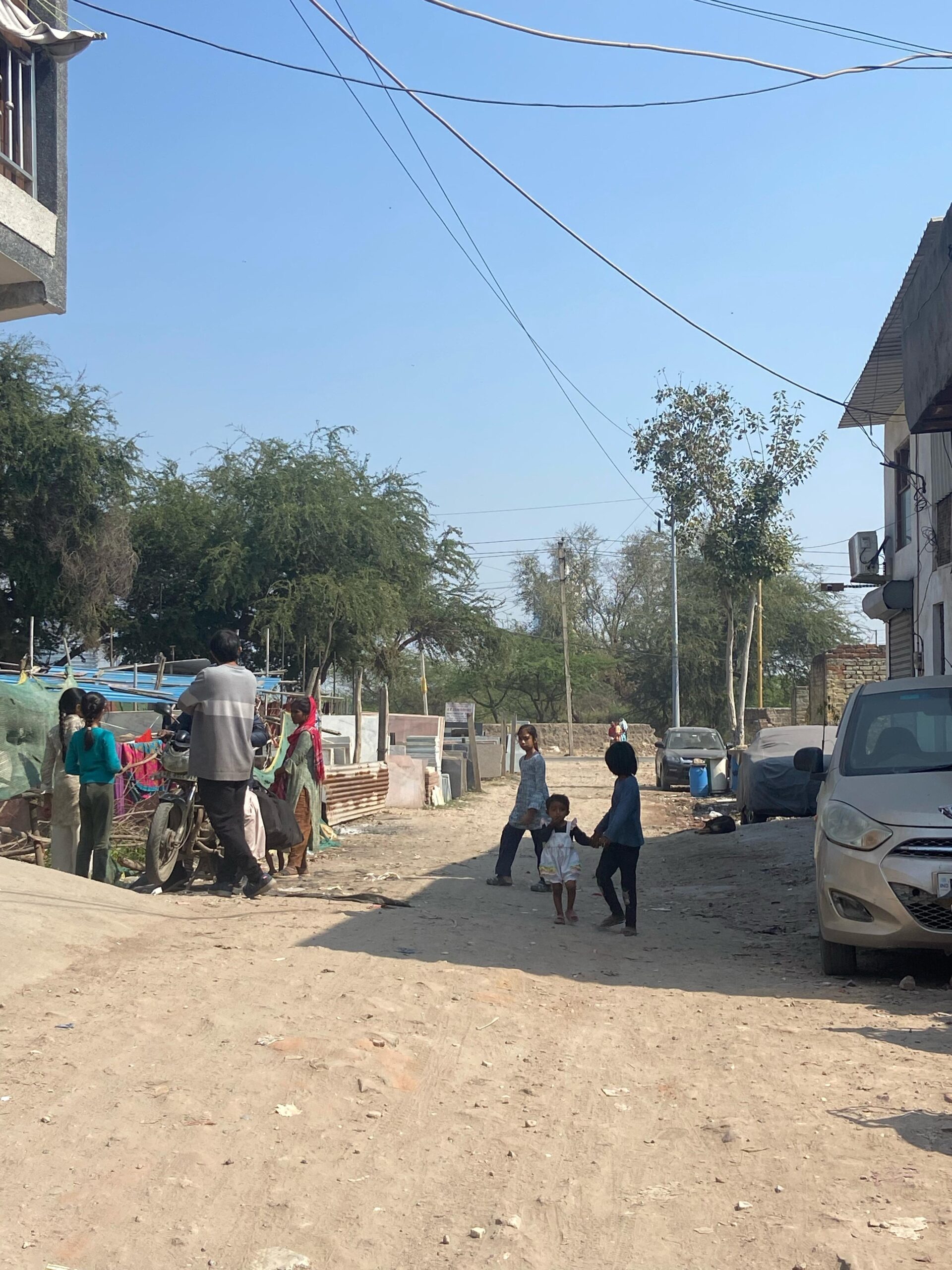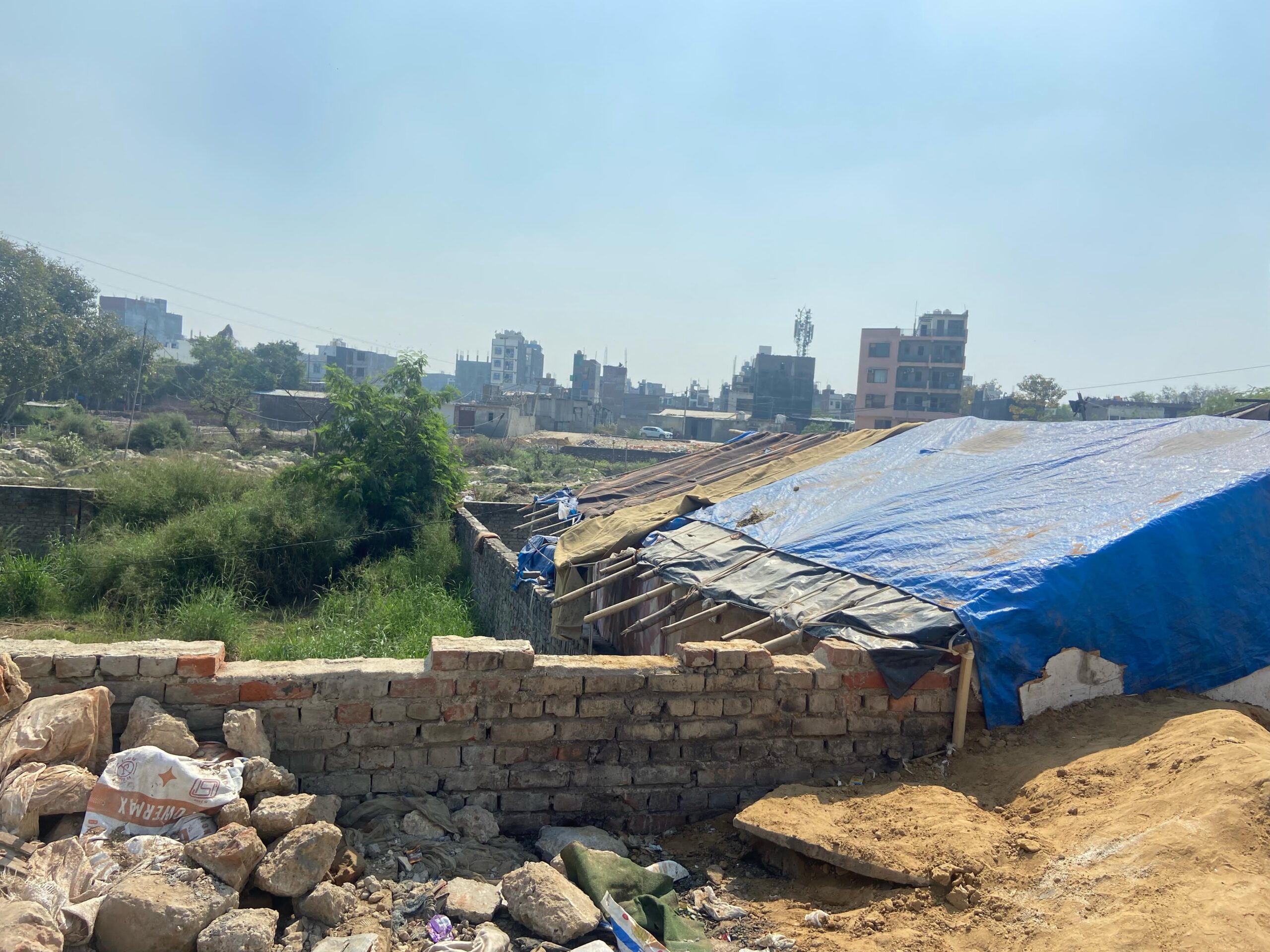Delhi: Despite SC Ruling, Education Still Remains Uncertain for Rohingya Children

Maryam Hassan and Zaina Shahid, TwoCircles.net
New Delhi: "If I go to school, can I play football?” asked a 15-year-old boy wearing a faded Ronaldo T-shirt at the Rohingya Refugee camp in Southeast Delhi's Kanchan Kunj locality. While the question seems simple, the answer is complicated by a web of court rulings and policy debates that have become obstacles to school enrollment for Rohingya children.Like him, many children in different Rohingya refugee camps in the city have been trapped in an education system that offers no clear guidelines for school admissions. This issue has been an ongoing debate, and the Supreme Court’s latest directive — offering legal recourse in case of denied admissions — has sparked renewed discussions.
On February 17, 2025, the top court ruled the Rohingya community can seek legal remedies in the High Court if they meet the eligibility criteria. But they are still denied school admission. According to a report by The Hindu, the direction was issued in response to a Public Interest Litigation (PIL) filed by advocate Ashok Agarwal, who sought school admissions for Rohingya refugee children irrespective of their Aadhar card status. However, this is not the first time the judiciary has addressed the issue.
The initial PIL, filed on October 29, 2024, pleaded government intervention to provide school admissions to children from the community but was dismissed by the Delhi High Court. Citing its limited role in policy-driven international issues, the court directed the petitioner to address the matter to the Union Ministry of Home Affairs (MHA). "Let the Ministry of Home Affairs take a call on this. There are a lot of issues involved. We cannot get involved," the bench had stated.
While the Supreme Court’s recent order offers legal recourse, the Delhi High Court’s initial dismissal and the apex court's ambiguity regarding school eligibility requirements for the children leave the refugee community in an uncertain position. A persistent reality Nazia (name changed) is one of the few literate individuals in the Rohingya camp in Kanchan Kunj. Though not a community leader herself, she takes on the responsibility of enrolling at least seven to ten children in primary government schools each year. She collects refugee cards, contacts the UNHCR for refugee certificates (documents that provide official recognition of refugee status and facilitate access to basic services) and repeatedly visits the school’s admission committee for months.
[caption id="attachment_451554" align="aligncenter" width="1920"] Kanchankunj Camp: Delhi[/caption]
Kanchankunj Camp: Delhi[/caption]
“It is never easy. I have to make frequent rounds to the school to ensure the children’s admission. This happens every year, despite the timely submission of all relevant documents,” she said.
According to her, even those students who secure admission to government schools often face uncertainty. Unable to afford the rising costs of supplementary learning, many students drop out once they reach Class 9 or 11. They either join the National Institute of Open Schooling (NIOS) or withdraw from school altogether.
“As the curriculum gets tougher, the need for external help through evening tuitions becomes unavoidable. However, paying Rs. 3000 monthly for one or two subjects is impossible for the parents,” Nazia explained.
Unlike her, who actively advocates for children’s admissions and is familiar with the UNHCR’s role, families in Khajuri Khas, Northeast Delhi, are often unaware of their options. A frustrated Sadiq said, “Since 2019, our children have been repeatedly denied admission. Even after submitting our refugee cards, the schools demand an Aadhar card or some other Indian identity document. How can we have that?”
His experience is representative of many Rohingya families in the area. According to a 2025 affidavit filed by senior Supreme Court lawyer Colin Gonsalves, at least 17 Rohingya children were denied admission in Khajuri Khas settlement over the course of two years.
Sadiq added religious seminaries often serve as alternatives for children who cannot secure admission to formal schools. One such seminary, established by a Rohingya refugee, Mohammad Syed, provides religious education and primarily teaches Urdu.
Meanwhile, in Kanchan Kunj, Nazia found some relief through educational assistance from NGOs. However, when their support was abruptly withdrawn, Nazia and the community were left to navigate the system on their own. NGOs under scrutiny Aasif Mujtaba, the CEO and founder of Miles2Smiles, a non-governmental organisation, explained the challenges his NGO faced while working for the Rohingya community. After the 2021 fires in the Kanchan Kunj camp, his team attempted to set up learning centers as part of their relief programme.
After alleged multiple denials, they eventually acquired land. But Aasif allegedly began receiving inquiry calls from the police.
“They questioned me in a threatening tone about our intentions to set up the centers and demanded paperwork,” he said and added, “They tried to intimidate me, but I refused to respond on the phone and insisted on a formal notice.”
The landowner, he alleged, faced similar calls. Fearing the consequences, the landowner refused to sell the land. “NGOs' role is to fill the gaps left by the government, yet it is the authorities who threaten our work,” Aasif said.
Despite repeated efforts, the NGO had to drop its plan in November 2021. In January 2022, Aasif’s team shifted its focus to establishing learning centers for Rohingya communities in Nuh, Haryana.
He recalled that during the Rohingya refugees' migration in 2012-13 and 2017-18, many NGOs were actively involved in the community’s upliftment. “The media those days highlighted the ground reality of the Rohingya community’s collective struggle — instances of mass rape, serial murders and burned homes — which emphasised the vulnerability and helplessness of these refugees.”
A report published by the Refugees International, an independent humanitarian organisation, noted the government attitudes towards refugees, especially Rohingyas, have deteriorated in recent years.
Aasif explained that over time, the government began portraying the Rohingyas as security threats, which shifted the narrative from a humanitarian focus to a security one. “The dominance of the security narrative over the humanitarian angle, coupled with intimidation from the authorities, led many NGOs to withdraw their support over time,” he added. Legal guarantees Vs. political rhetoric Although India is not a signatory to the 1951 Refugee Convention, it has historically addressed refugee rights through judicial and constitutional safeguards. Advocate Colin Gonsalves highlighted the NHRC v. State of Arunachal Pradesh case (1996), where the Supreme Court held that there was prima facie a threat to the lives of Chakma refugees and affirmed that Article 21 of the Constitution applied to them.
[caption id="attachment_451555" align="aligncenter" width="2560"] Kanchankunj Rohingya Refugee Camp: Delhi[/caption]
Kanchankunj Rohingya Refugee Camp: Delhi[/caption]
“This case affirmed that basic rights and protection extend to all individuals in India, including non-citizens, especially when their liberties and lives are at risk,” he said. Moreover, the 86th Constitutional Amendment Act (2002) incorporated the clause of “free and compulsory” education for all children aged 6 to 14 years in Article 21A, which was further expanded through the Right to Education (RTE) Act of 2009.
Despite these legal guarantees, political parties continue to engage in narratives that undermine refugee rights. As the 2025 Delhi elections approached, such rhetoric intensified.
Two days before the assembly elections, a Jawaharlal Nehru University (JNU) report titled Illegal Immigrants to Delhi: Analysing Socio-Economic and Political Consequences claimed that the influx of Bangladeshi and Rohingya migrants in Delhi was altering the capital’s socio-political and economic landscape.
On the same day, Hindu nationalist Bharatiya Janata Party (BJP) MP Sambit Patra cited the report in a press conference, alleging that political patronage from the then incumbent Aam Aadmi Party (AAP) had enabled this influx. Prepared by the Indian Council of Social Science Research (ICSSR), involving scholars from JNU and the Tata Institute of Social Sciences (TISS), the report faded from public discourse following the BJP’s victory in the capital on February 8, 2025.
Previously, in December 2024, the AAP accused the BJP of secretly settling Rohingyas in Delhi, citing two tweets by Union Urban Development Minister Hardeep Singh Puri.
“On August 17, 2022, Hardeep Puri posted two tweets that clearly show that it is a 'conscious decision and policy' of the BJP government to settle these refugees in Delhi,” the then Delhi Chief Minister Atishi wrote in a letter to Union Home Minister Amit Shah on December 15, 2024. Puri’s tweets initially promised EWS housing in Bakkarwala, along with basic amenities and police protection. Hours later, the MHA denied these plans, after which Puri aligned with the ministry's statement.
Amid these exchanges, the Delhi government issued a circular in December 2024 barring admissions for “illegal Bangladeshi immigrants". The then chief minister clarified in a tweet on December 23 that the ban would also extend to Rohingya children. “...the Education Department of Delhi Government has passed a strict order that no Rohingya should be given admission in the government schools of Delhi,” Atishi wrote on X.
These politically charged exclusions contrast with the recent Supreme Court's order.
Advocate Raees Ahmad, who practices at the Delhi High Court, explained, “Post the Supreme Court ruling of February 17, 2025, if a government or private school denies admission to any child, in general, or a Rohingya child, in particular, the concerned institution would be engaging in contempt of court. In such a scenario, the school would face serious consequences, even to the extent of suspension of its functions.”
With the BJP now in power, no official statement from any representative has been issued following the Supreme Court verdict. So far, attempts to reach them have gone unanswered. The data gap According to a recent Hindustan Times report, the Union government informed the Lok Sabha that between 2014 and 2024, 89,441 government schools were closed, while private schools increased by 42,944. While no reason was provided for these numbers, it is worth noting the NITI Aayog’s November 2023 report emphasised school mergers, teacher rationalisation and reforms in teacher education as essential measures to enhance learning outcomes.
“Privatisation has never been done in secret. Whether under the former AAP government or the current BJP rule in Delhi, it has all been done openly,” said Ahmad. The shrinking number of government schools raises questions about the practical implementation of the Supreme Court’s order.
Advocate Gonsalves criticised the government for its failure to adhere to Article 21A of the Constitution: “It is absurd that we have arrived at a point where the debate revolves around the eligibility of small children to access fair and formal education.”
Almost two weeks after the SC judgment, Rohingya parents, including Sadiq, remain unaware of the recent development. Even in Kanchan Kunj, Nazia knows that this admission season will involve the same difficulties and delays.
Ensuring Rohingya children’s right to education in Delhi remains a challenge — at least until the enrollment processes in schools become effectively standardised.
